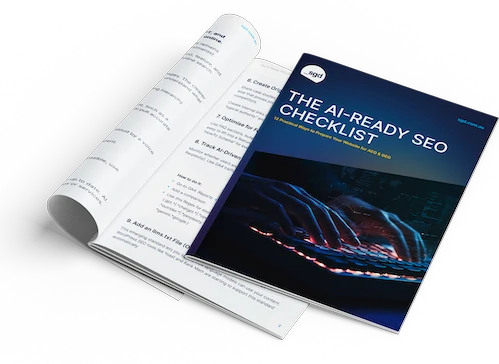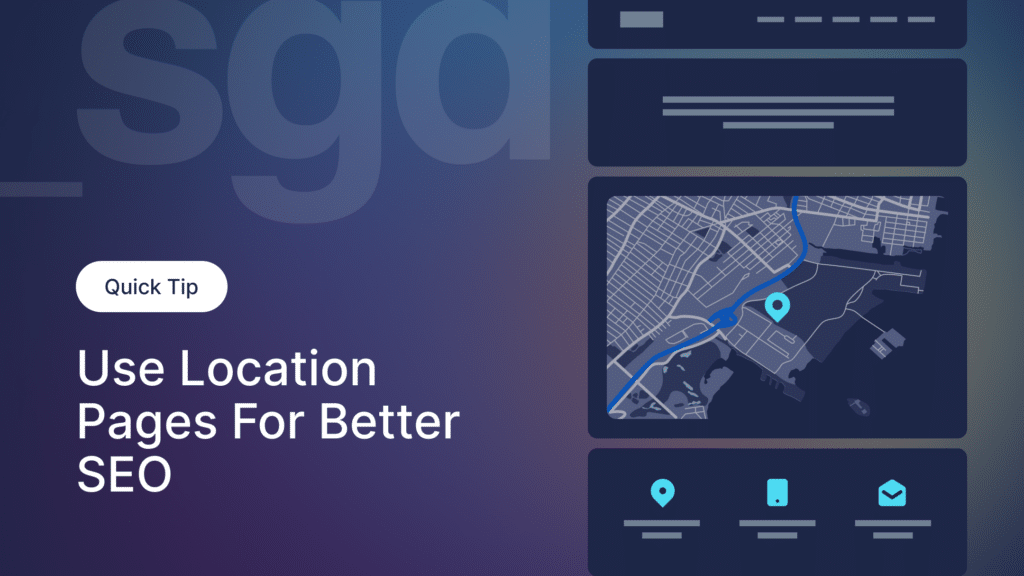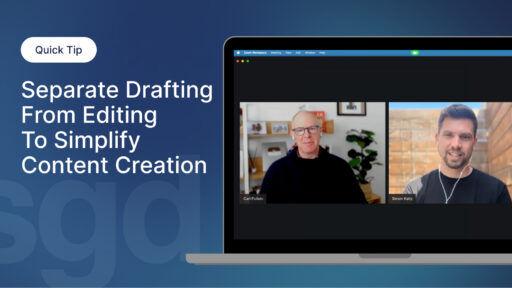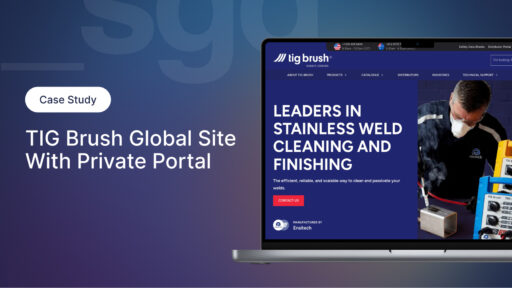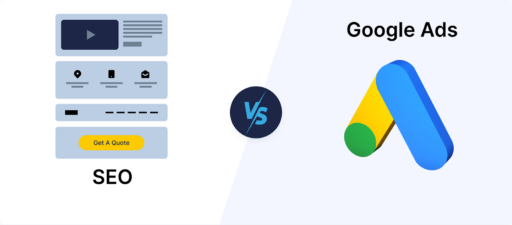Being visible online in 2026 isn’t just about ranking on Google, it’s also about showing up in AI search results for local searches.
Whether someone types a query into Google or asks ChatGPT for a recommendation, location-based results are often prioritised.
If your business doesn’t have clear, optimised pages for the areas you serve, you risk missing out on the people most ready to buy in your market.
One of our clients, Trent Dolman, recently asked: “How do I create location pages on my website to help with SEO?”
It’s a great question and one I hear often from businesses that serve multiple suburbs, cities, or regions.
Let’s look at what location pages are and how to set up pages so your business can use them to increase visibility.
Key takeaways:
- Local and AI search prioritise proximity
- Use a service area hub plus individual service-location pages
- Each location page needs unique, locally relevant content
- Strong internal linking helps users and search engines navigate easily
What are location pages?
Location pages are dedicated pages on your website that combine your service with a geographic area.
For example, “SEO Agency Melbourne” or “Website Designer Sydney.”
These pages are powerful because search engines like Google (and increasingly AI search engines) automatically factor in the searcher’s location to give the most relevant results.
In fact, 46% of all Google searches have a local intent (Backlinko, 2025).
That means almost half of searches are from people looking for businesses near them.
And it’s not just Google – according to Microsoft, nearly 40% of people now use AI search tools like ChatGPT or Copilot to find local information.
This makes location-specific pages more valuable than ever, because they help your business show up in both traditional search and the new generation of AI-driven answers.
Examples of location pages
- Seriously Good Design (our agency) targets “Web Design Melbourne”
- First Focus attracts clients with “Managed IT Services Sydney”
- Larry the Locksmith uses suburb-based pages to dominate local visibility
- Thrive Chiropractic grows visibility through local service pages
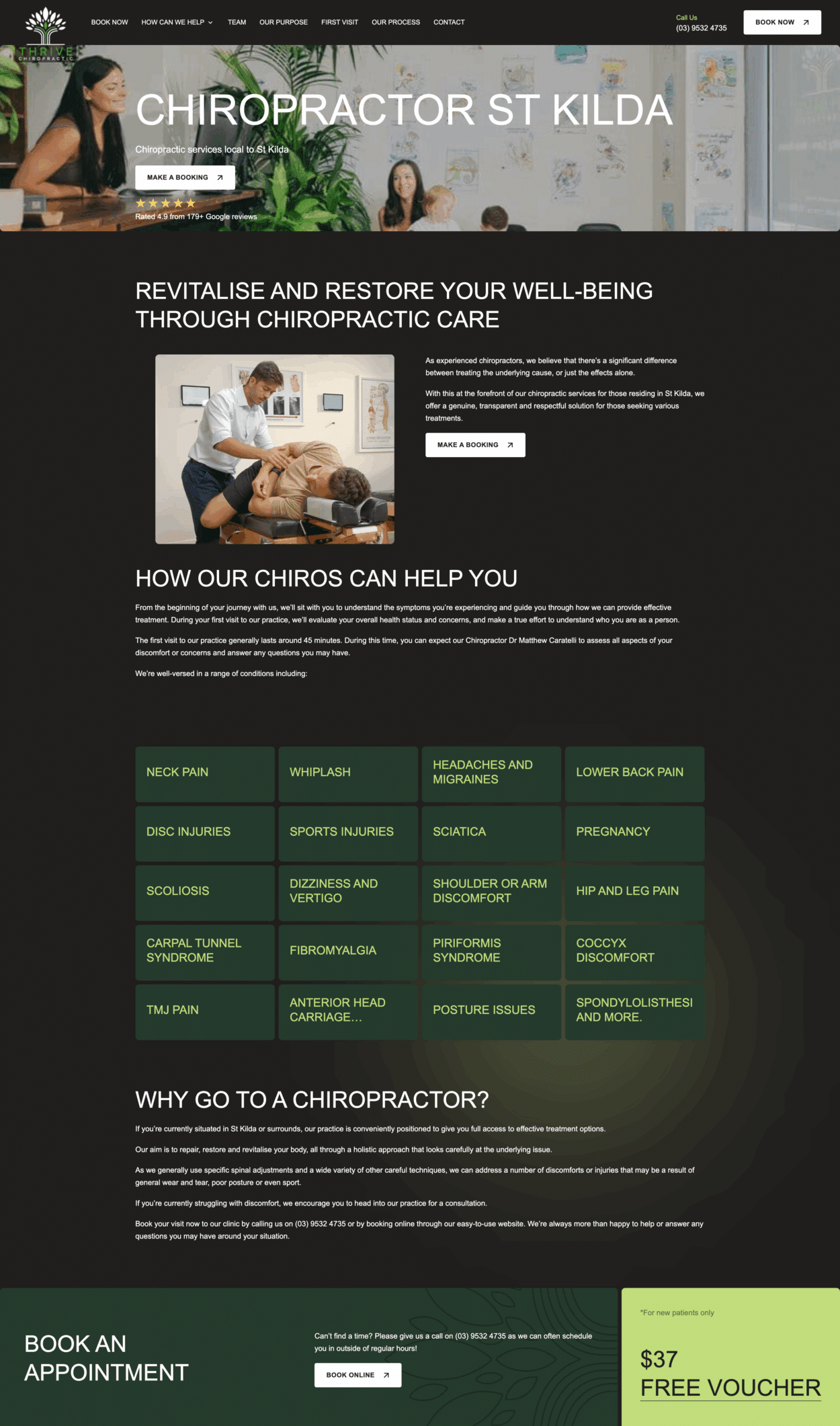
How to create location pages for SEO
Here’s how to create location pages for your business so you can show up in the Google and AI search results:
1. Plan your sitemap
Start by mapping out the locations and services you want to target. Think about where your customers are searching from and how those places connect to the services you provide.
This planning step is crucial because it helps you avoid overlap, ensures coverage of key areas, and sets the foundation for building structured location content that search engines can understand.
2. Create a service area page
This is a central hub that lists all the suburbs, cities or regions you serve.
A well-structured service area page also helps establish authority, and it’s a great place to link out to each of your detailed location pages.
Think of it as the table of contents for your local SEO.
Taking Care Mobile Massage does a brilliant job of a service area page.
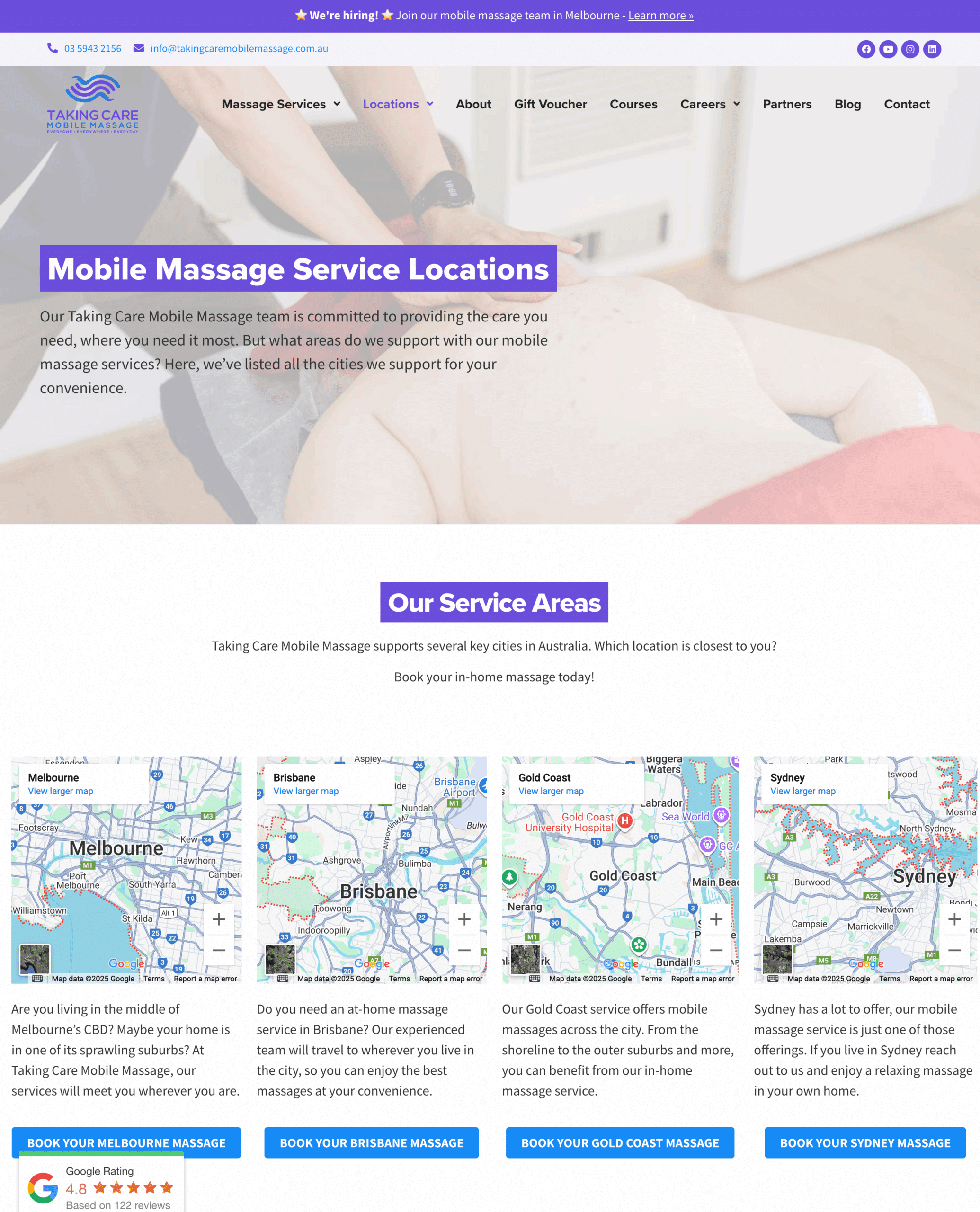
3. Build individual location pages
Each page should target one service-location combination.
For example, “Plumbing Services Richmond” or “IT Support Sydney”. This would also be the page title and the H1 for that page.
These pages should include unique content about that service in that area, along with testimonials, FAQs, or relevant case studies.
Done well, these pages signal to Google and AI engines that your business is active and trusted in that location.
4. Add internal links
Internal linking is what ties your SEO strategy together.
Each location page should link back to your main service page for authority, and to your service area hub for structure.
Likewise, your service area page should link out to every location page.
This interlinking makes it easier for users to navigate and helps search engines understand the hierarchy of your content.
5. Add visibility
Finally, make sure your service area hub isn’t buried.
Adding it to your website footer ensures it’s accessible from every page.
This small step increases crawlability, helps Google find your location content faster, and makes it easier for users to discover the areas you serve without having to dig through your site.
Pro Tip: Clone and Index
If you’re using WordPress, save time by cloning an existing service page and editing it. You can use the free plugin Yoast Duplicate Post.
Once published, submit your new pages to Google Search Console and request indexing.

Avoid Duplicate Content
Don’t copy and paste the same content on each page. Each location page should have at least 200 words of unique content.
Ready to Grow with Local SEO?
We’ll audit your current visibility, uncover quick wins for local and AI search, and highlight where your competitors are outranking you.
FAQs
Common questions about website location pages for SEO and AI visibility.
A strong local service page should include your core service description, details that reference the local area (such as suburbs, landmarks or industries served), customer testimonials that reference the location, and a clear call to action like “Book a Call” or “Get a Quote.”
It should also feature your business contact details, opening hours, and links to other relevant services so search engines and AI tools can clearly understand and rank your page.
Location-specific pages increase your visibility in local search results and AI answers by showing that your business serves that exact area.
They also attract more qualified leads because you’re meeting people at the exact moment they are looking for a solution nearby.
In addition, they build stronger signals of authority for your business, improving rankings across both traditional Google search and AI-driven platforms.
Yes. Even if your company serves clients nationwide, creating location-based pages helps capture regional search traffic and win business in specific markets.
National companies that invest in local pages often outperform competitors by combining broad visibility with local relevance.
For example, a national IT provider with city-specific service pages (like “IT Support Sydney” or “IT Support Melbourne”) is more likely to appear in both Google and AI search results when prospects are searching for services in those areas.
